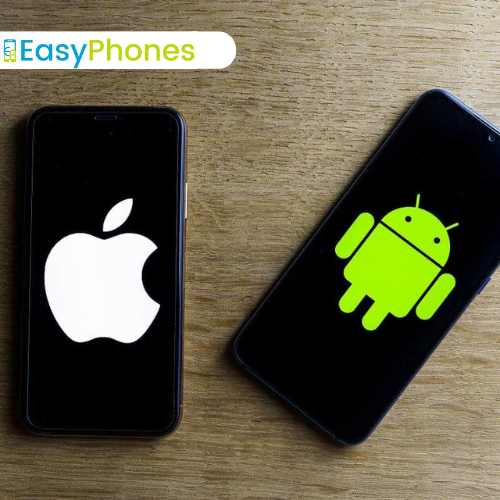
EasyPhones Explainer: Understanding Smartphone Operating Systems
Share
Smartphone operating systems are the invisible engines that power our devices, serving as the interface between users and the underlying hardware. In this EasyPhones Explainer, we delve into the world of smartphone operating systems, demystifying their roles, highlighting popular options, and exploring the factors that influence users' choices.
The Role of Operating Systems
- Interface Facilitation Operating systems provide the graphical user interface (GUI) that users interact with. They facilitate touch gestures, navigation, and overall usability.
- System Resource Management Efficient allocation and management of system resources, such as CPU, memory, and storage, are crucial functions of operating systems to ensure smooth device performance.
- Application Execution Operating systems enable the execution of applications, acting as intermediaries between the software and the device's hardware components.
- Security Measures Implementing security features like encryption, authentication, and access controls, operating systems play a vital role in protecting user data and privacy.
Popular Smartphone Operating Systems
- Android
Open-Source Flexibility Android, developed by Google, is an open-source operating system known for its flexibility and extensive customization options. It powers a vast majority of smartphones globally, offering a diverse range of devices across brands.
App Diversity The Google Play Store on Android provides access to a vast array of applications, making it a preferred choice for users who value app diversity.
Integration with Google Services Android seamlessly integrates with various Google services, offering a cohesive ecosystem for users heavily invested in the Google ecosystem.
- iOS
Apple's Ecosystem iOS, exclusive to Apple devices, is renowned for its seamless integration across iPhones, iPads, and other Apple products. It provides a curated and controlled environment, ensuring a consistent user experience.
App Store Quality Control The App Store on iOS is known for stringent quality control, contributing to a perception of higher app quality and security.
Regular Updates Apple provides timely updates to iOS across its supported devices, ensuring users have access to the latest features and security enhancements.
- HarmonyOS
Huawei's Integration Approach HarmonyOS, developed by Huawei, is designed to be a versatile operating system that can run on various smart devices, including smartphones, smart TVs, and more. It emphasizes cross-device collaboration and a seamless user experience.
Distributed Capabilities HarmonyOS boasts distributed capabilities, allowing multiple devices to work in harmony, sharing resources and providing a unified user experience.
Adaptability Huawei aims to make HarmonyOS adaptable to different screen sizes and hardware specifications, offering a consistent user interface across diverse devices.
Factors Influencing Choice
- User Preference The choice between Android, iOS, or other operating systems often boils down to user preference, including familiarity, app preferences, and overall ecosystem satisfaction.
- App Availability The availability of specific applications on a particular operating system can heavily influence users' decisions, especially if they rely on certain apps for work or leisure.
- Brand Loyalty Brand loyalty plays a significant role, with users often sticking to a particular operating system based on their positive experiences with a brand's ecosystem.
- Device Compatibility The compatibility of an operating system with a user's preferred device or brand is a critical consideration. Some operating systems are exclusive to specific manufacturers.
Conclusion
Understanding smartphone operating systems empowers users to make informed choices aligned with their preferences and needs. Whether you opt for the open flexibility of Android, the seamless integration of iOS, or the versatile approach of emerging systems like HarmonyOS, the world of smartphone operating systems offers diverse options to cater to every user.
Explore the wide range of EasyPhones that support various operating systems, providing users with choices that align with their preferences and needs.



